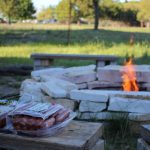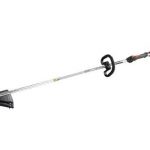Fall has always been a difficult season for getting your lawn in order and prepping it for a long summer. A number of myths have bounced around through the years, mixed in with facts. Today, we’ll look at five myths about fall lawn care that have been demonstrated to be incorrect over that time.
Myth: Don’t fertilize in the fall.
Truth: Just because many of the fertilizer companies push their fertilizer in the spring doesn’t mean that you should only fertilize then. In actuality, you can fertilize in all seasons, but if you can only fertilize once, early fall is actually the best time to do so. Even in dormant times, the grass needs some sort of food to feed on.
Myth: You should put lime on your lawn every fall.
Truth: Liming your lawn should not be done habitually, but only when the ph balance of your lawn needs to be balanced. Putting granular lime on your lawn is generally a waste of time and money, and you should have your soil tested by a professional lab before you decide to so down this route.
Myth: You should mow your lawn extremely short in the fall to prep for winter.
Truth: The height you cut your lawn should not change depending on the season, it should remain consistent. Cutting height should be determined by the type of grass you have planted in your lawn, and should only vary throughout the year by a half-inch or so. Once you cut your lawn late in the fall, it will grow very little throughout the winter, and going too short can expose the grass to damaging frost, as well as give weeds room to grow should a brief warm spell come through.
Myth: Grass does not need to be watered in the fall.
Truth: Any time there is a lack of precipitation, your lawn will need to be watered. In northern climates, snow can often be good for the lawn in that it is a slow water release, but if it does not rain or snow for an extended amount of time, even in the dead of winter, you’ll need to give your grass a bit of water. Sure, it will be dormant over the winter, but it still needs water, or you run the risk of seeing severe damage come spring.
Myth: You should clear all leaves and debris from your lawn so it doesn’t smother the grass.
Truth: While it’s true that you don’t want your lawn to be smothered by leaves, needles and other debris, you also shouldn’t waste your time fretting over every little bit. In fact, it is better for your lawn if you leave some of the debris in the yard and run it through your last mowing cycle. Worms love these things for food, and leaving food around will promote worms, which in turn will promote lawn growth. The decomposing matter will also release small amounts of nutrients throughout the winter.







